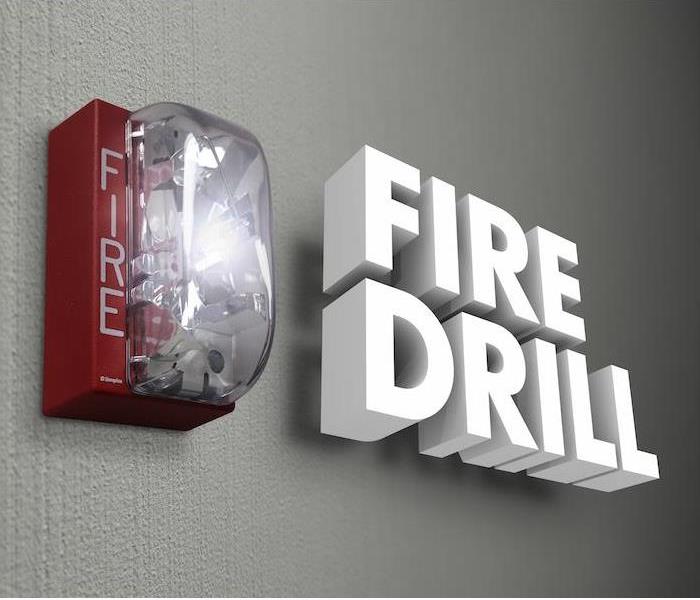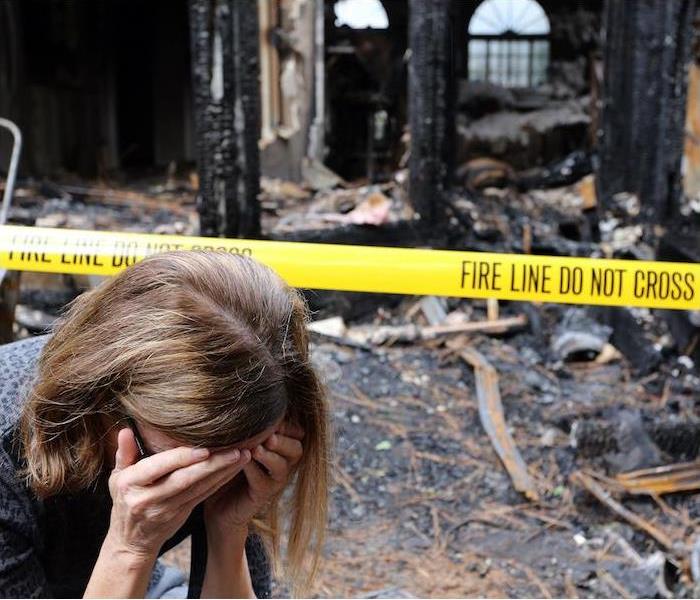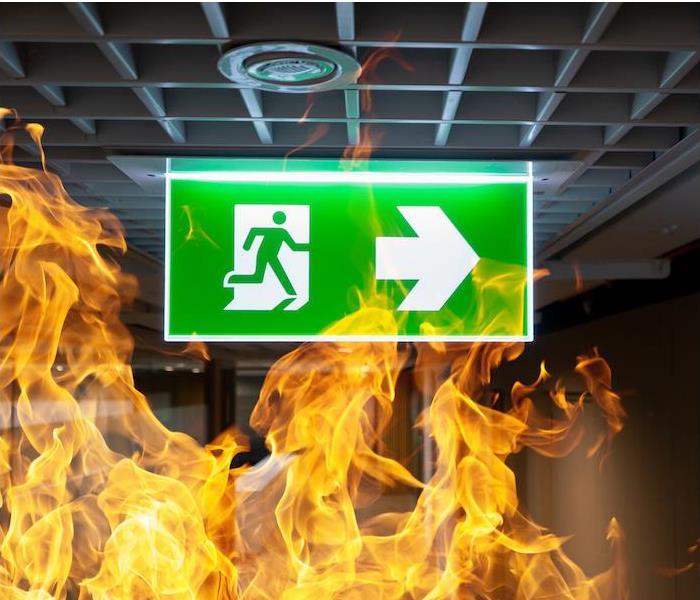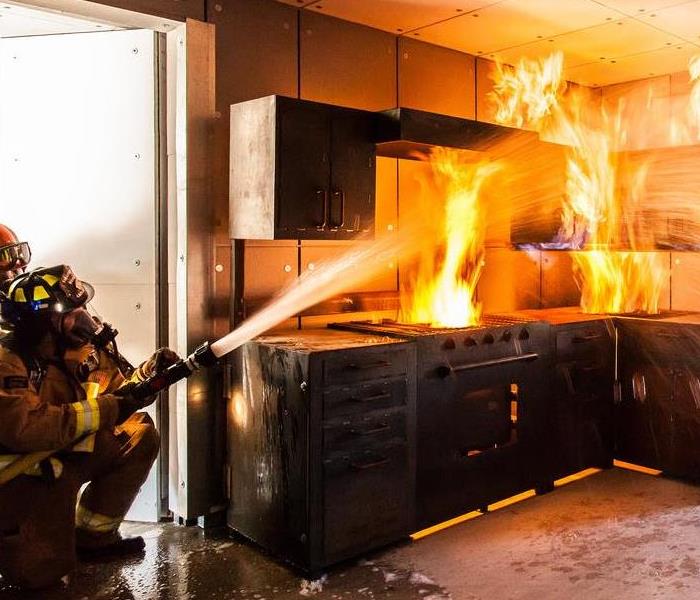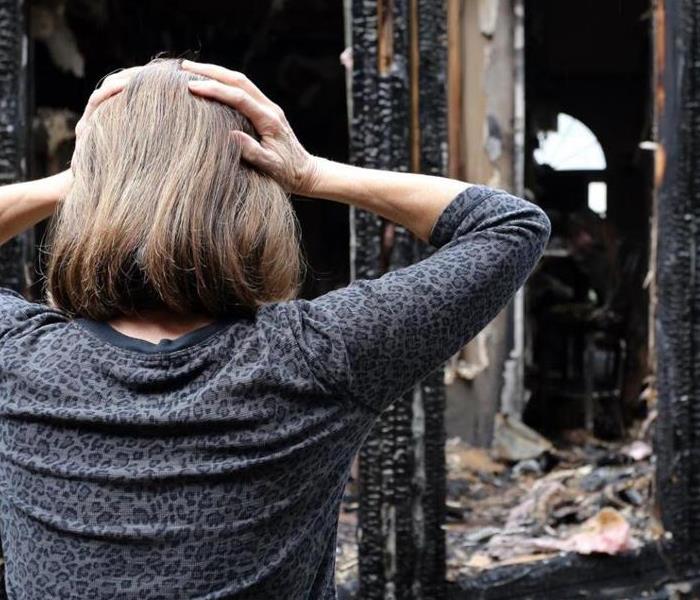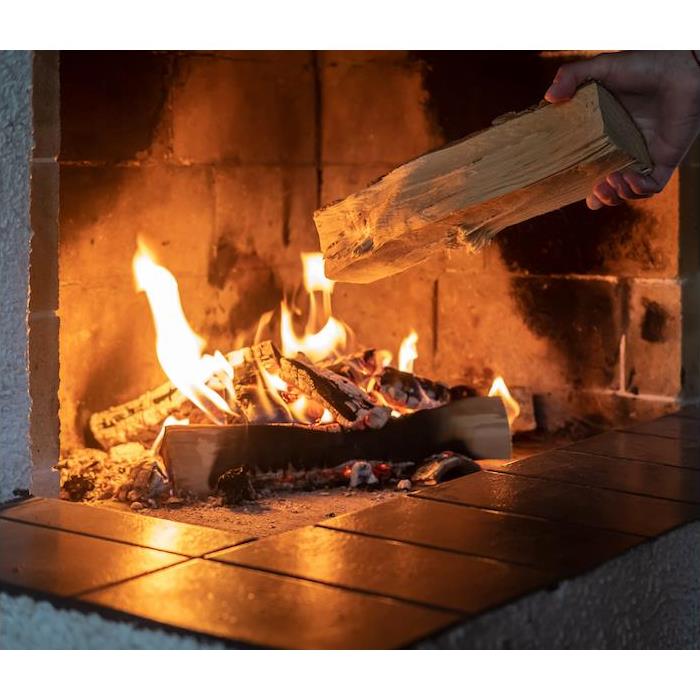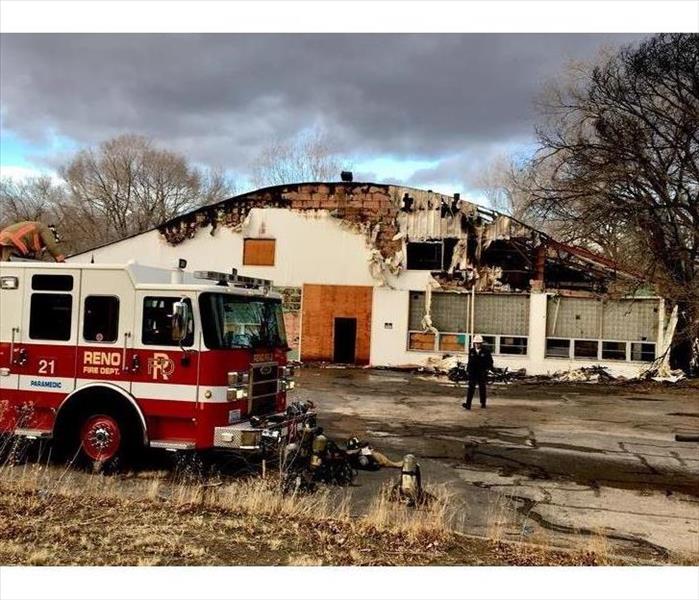Recent Fire Damage Posts
Thanksgiving Fire Safety: Celebrate Without Worry | SERVPRO of Reno Southwest
11/21/2024 (Permalink)
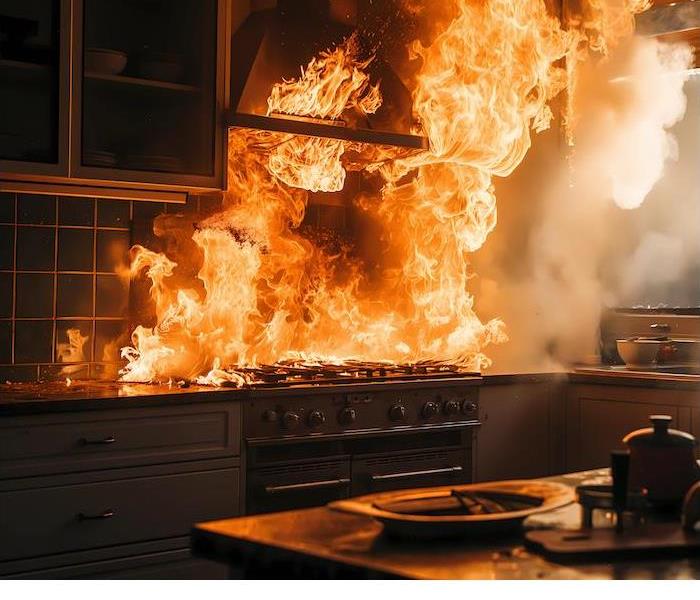 Ensure a safe Thanksgiving with fire prevention tips! Learn how to cook safely, fry a turkey, and protect your home.
Ensure a safe Thanksgiving with fire prevention tips! Learn how to cook safely, fry a turkey, and protect your home.
Thanksgiving is a time for gathering with loved ones and enjoying delicious meals, but it can also present fire hazards if safety measures aren’t taken. At SERVPRO of Reno Southwest, we want to help you ensure a safe and enjoyable holiday. Here are essential tips for Thanksgiving fire safety, including how to deep fry a turkey without risking your home.
Keeping Your Kitchen SafeThe kitchen is often bustling with activity during Thanksgiving, making it crucial to maintain a safe cooking environment. Start by keeping flammable items like dish towels and paper products away from the stove. Always stay focused on your cooking, especially when using oil or open flames.
If you need to step away, even briefly, turn off the heat to prevent accidents. Additionally, having a fire extinguisher on hand is essential. Ensure everyone in your household knows where it is and how to use it, so you’re prepared for any emergencies.
Safe Turkey Deep Frying TechniquesDeep frying a turkey can yield delicious results, but it requires careful handling to avoid fire hazards. Always set up your fryer outdoors, away from your home, garages, and any low-hanging branches. Use a flat, stable surface to prevent spills and accidents.
Before heating the oil, make sure your turkey is completely thawed and dry; moisture can cause hot oil to splatter dangerously. Keep a close eye on the oil temperature and never leave the fryer unattended. If a fire does occur, use a fire extinguisher rated for grease fires—never use water to put out a grease fire.
Post-Feast Safety MeasuresAfter you’ve savored your Thanksgiving meal, fire safety remains important as the festivities continue. Turn off all cooking appliances and be mindful not to leave leftovers out for too long. Properly dispose of used cooking oil, as it can be a fire risk if not handled correctly. After a long day of cooking, avoid the temptation to leave hot pots or pans unattended; allow them to cool completely before cleaning or storing. Always remember that safety is an ongoing concern throughout the holiday.
Thanksgiving is a time for gratitude and togetherness, but it’s vital to prioritize safety in the kitchen. By following these Thanksgiving fire safety tips, including safe practices for deep frying a turkey, you can enjoy a worry-free holiday.
If you do experience a fire in your home, SERVPRO of Reno Southwest is here to help® with fire damage restoration and cleanup. For more information on fire safety and our restoration services, contact us today.
Prioritizing Outdoor Fire Safety: A Vital Guide for Reno Residents | SERVPRO of Reno Southwest
8/1/2024 (Permalink)
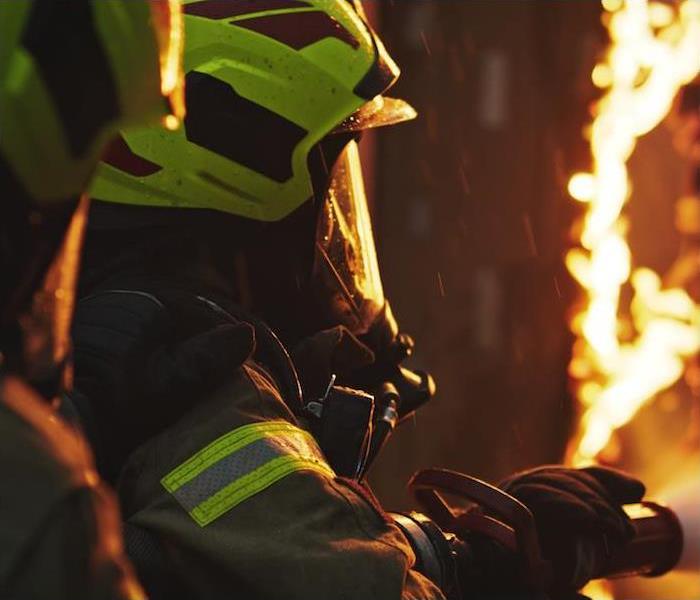 SERVPRO of Reno Southwest is ready to help you have a fire-safe summer season with these helpful tips!
SERVPRO of Reno Southwest is ready to help you have a fire-safe summer season with these helpful tips!
Living in the beautiful region of Reno offers numerous perks, including stunning landscapes and a vibrant community spirit. However, with these benefits come responsibilities, particularly when it comes to outdoor fire safety.
Whether you enjoy camping, backyard barbecues, or simply relaxing on your patio, understanding and implementing fire safety practices is crucial to protect your property and loved ones.
Understanding the RisksReno, nestled in the high desert region of Nevada, is known for its dry climate and occasional windy conditions. These factors contribute to an increased risk of outdoor fires, which can quickly escalate if not managed properly. Common causes of outdoor fires include unattended campfires, discarded cigarette butts, and sparks from outdoor equipment or machinery.
Essential Fire Safety Practices1. Clearing Debris and Vegetation: Keep your outdoor spaces clear of dry leaves, brush, and other flammable materials. Regularly clean gutters and remove dead vegetation from around your home to create a defensible space.
2. Proper Use of Fire Pits and Barbecues: If you use a fire pit or barbecue, ensure it is placed on a non-combustible surface and at a safe distance from any structures or vegetation. Always have a water source or fire extinguisher nearby.
3. Extinguishing Campfires: When camping, follow local regulations regarding campfires. Always fully extinguish fires with water, stirring the ashes until cold to the touch. Never leave a campfire unattended.
4. Smoking Safety: If you smoke outdoors, use designated receptacles for cigarette butts and ensure they are fully extinguished before disposal. Avoid smoking in areas with dry vegetation or combustible materials.
5. Monitoring Weather Conditions: Be aware of weather forecasts and avoid outdoor burning on windy days or during red flag warnings. Winds can quickly spread sparks and flames, leading to uncontrollable fires.
Preparedness and Prevention1. Creating an Emergency Plan: Develop and practice a family emergency plan that includes evacuation routes and meeting points. Ensure everyone knows how to contact emergency services.
2. Maintaining Fire Safety Equipment: Regularly inspect and maintain fire extinguishers, smoke detectors, and sprinkler systems in your home. These devices can save lives and minimize property damage in the event of a fire.
Community ActionIn Reno, outdoor fire safety isn’t just a precaution—it’s a necessity. By understanding the risks, implementing essential safety practices, and staying informed about local regulations, you can enjoy outdoor activities responsibly while safeguarding your home and surroundings from potential fire hazards. Remember, fire prevention starts with each individual taking responsibility for their actions. Together, we can ensure Reno remains a safe and thriving community for all residents.
Contact SERVPRO of Reno Southwest today for quick and reliable fire damage restoration assistance. Our expert team is here to help you protect what matters most.
Safely Setting Up a Bonfire in Reno: Tips for Enjoying Outdoor Gatherings | SERVPRO of Reno Southwest
6/3/2024 (Permalink)
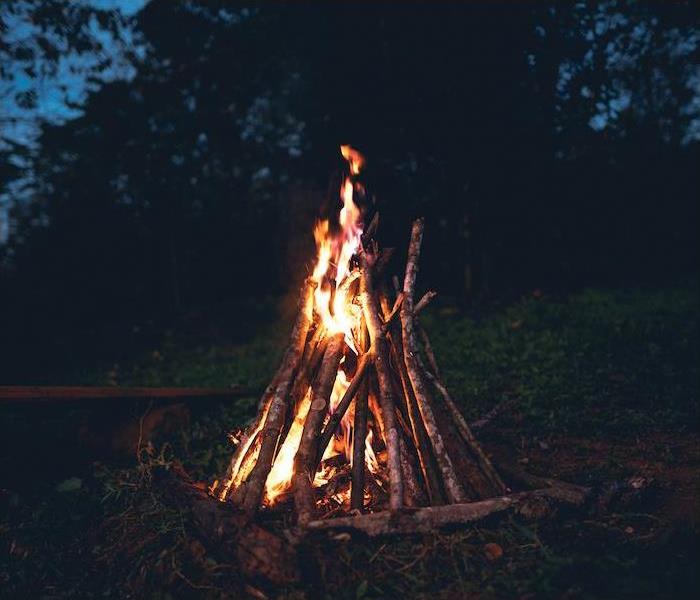 Gather around the bonfire, but don't forget about fire safety! Follow these tips from SERVPRO of Reno Southwest to ensure a fun and safe night.
Gather around the bonfire, but don't forget about fire safety! Follow these tips from SERVPRO of Reno Southwest to ensure a fun and safe night.
As the weather warms up in Reno, there’s no better way to spend evenings than gathering around a crackling bonfire with friends and family. However, before you ignite those flames, it’s essential to prioritize safety to ensure a fun and incident-free experience.
Here are some crucial tips for setting up a bonfire safely in the Reno area.
Choosing the Right LocationThe first step in setting up a safe bonfire is selecting an appropriate location. Look for an area that’s clear of overhanging branches, dry grass, or any flammable materials. In the Reno area, it’s essential to be mindful of the dry climate and potential fire hazards.
Opt for a spot that’s at least 15 to 20 feet away from buildings, fences, and other structures. Additionally, check local regulations and any fire restrictions in place before lighting a fire. Some areas may have bans or limitations on open fires during certain times of the year.
Preparing the Fire PitOnce you’ve chosen a suitable location, it’s time to prepare the fire pit. If you’re using an existing fire pit, ensure that it’s clean and free of debris. Clear away any leaves, twigs, or other flammable materials from the surrounding area.
If you’re creating a new fire pit, dig a shallow pit and surround it with rocks or bricks to contain the flames. Make sure the fire pit is small enough to control and that it provides proper ventilation for the fire to breathe. Avoid using accelerants like gasoline or lighter fluid, as they can quickly spiral out of control and pose a significant risk of injury or property damage.
Safely Managing the FireOnce the fire is lit, it’s crucial to monitor and manage it carefully. Never leave a fire unattended, even for a few minutes. Assign someone to supervise the fire at all times and keep a bucket of water, a hose, or a fire extinguisher nearby in case of emergencies.
Avoid throwing anything into the fire other than firewood, as certain materials can release toxic fumes or cause unexpected flare-ups. As the evening winds down, ensure that the fire is completely extinguished before leaving the area. Use water to douse the flames thoroughly, and stir the ashes to ensure that no hot embers remain.
By following these safety tips, you can enjoy the warmth and camaraderie of a bonfire without putting yourself or others at risk. Remember to always prioritize safety and respect local regulations when setting up outdoor fires in the Reno area.
If you ever experience fire-related damage to your property, SERVPRO of Reno Southwest is Here to Help®.
Staying Warm the Fire-Safe Way This Winter | SERVPRO of Reno Southwest
1/16/2024 (Permalink)
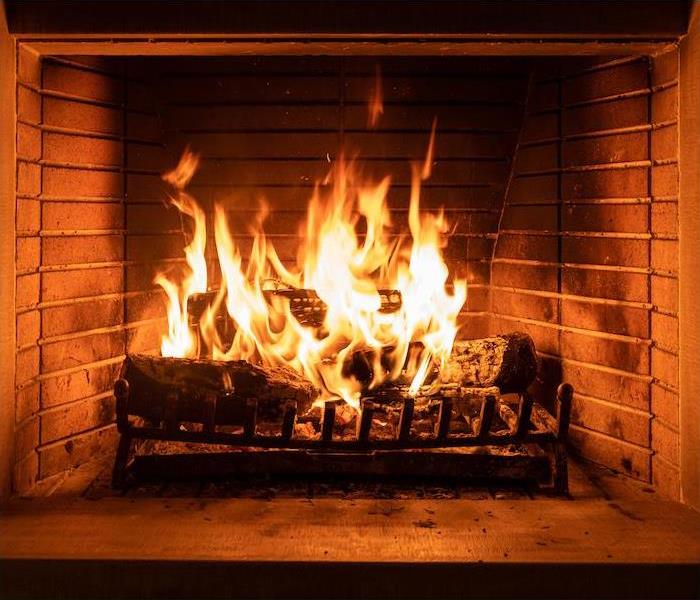 Fire safety is a top priority for us at SERVPRO of Reno Southwest this winter. Keep your home safe with these helpful tips!
Fire safety is a top priority for us at SERVPRO of Reno Southwest this winter. Keep your home safe with these helpful tips!
The temperature has dropped, some snow has fallen and we have all perfected our penguin walks when the sidewalks are icy. There’s no doubt about it, we are in the heart of the winter season here in the Reno area.
While we all can appreciate a chilly or snowy day, many of us spend much more time indoors cozied up on the couch. However, every time we turn on a space heater or crank on our fireplaces, the risk of suffering a house fire increases significantly. We explain some easy fire-safe tips below so you can stay safe while also staying warm.
Preparing the FireplaceThe ambiance of a warm, crackling fire can be the perfect backdrop for the season, but fireplaces can be really dangerous if they are not prepared or maintained properly. If you have a wood-burning fireplace, clean out ash buildup from previous fires and scrub down your chimney walls to remove creosote residue. Your chimney should also be inspected regularly for cracks or signs of aging.
If you have flammable materials on your mantle, remove them before starting up the fire and check to make sure your smoke detectors batteries are fresh. If you have an electric or gas fireplace, you should be checking the lines each time before flipping your switch on. A single gas leak or faulty electrical line can be seriously dangerous to your entire family.
Setting Up Space HeatersHaving a space heater in a room can add some much-needed warmth, but they can also be dangerous in their own right. In fact, about 1,700 house fires are started every year by space heater accidents or mishaps! Setting your space heater up the right way is the key to success.
Choose a hard, level and nonflammable material for your heater to sit on. Avoid carpet or rugs, and make sure the space heater is far away from things like curtains or couch cushions. Check the cord to make sure it isn’t twisted, and lay it flat to avoid creating a tripping hazard.
Create a three-foot barrier around your space heater to keep out kids and pets, and never leave it unattended in a room for any period of time. Never plug a space heater into an extension cord, and always be sure it is switched off and unplugged before going to bed.
Additional Safety Tips for HeatersNot all space heaters are created equally, and some brands are safer and more reliable than others. That’s why it is so important to do your research before purchasing anything! Just because something is on sale doesn’t necessarily make it a good deal.
First off, make sure you are purchasing your heater from a certified and reliable company. This company should have passed all of its necessary safety certifications before manufacturing the heater in question and should have positive reviews online. Next, make sure it has a safety shutoff feature that can take over to turn off after a certain period. This can be a helpful backup if you have a busy family or have a hard time remembering to shut off appliances.
Finally, take the time to inspect the cord coming out of the heater. It should be at least six feet long so you can set it up in a safe location and should be made of high quality and sturdy materials.
We wish you a safe and warm rest of your winter season! House fires can start in any manner of ways, so call us right away if you suffer from fire damage. We will take care of your entire restoration from start to finish.
A quick fire damage restoration is just a phone call away. Call SERVPRO® for immediate assistance.
Enjoy Cooking Your Holiday Meals Without the Risk of Fire | SERVPRO of Reno Southwest
11/17/2023 (Permalink)
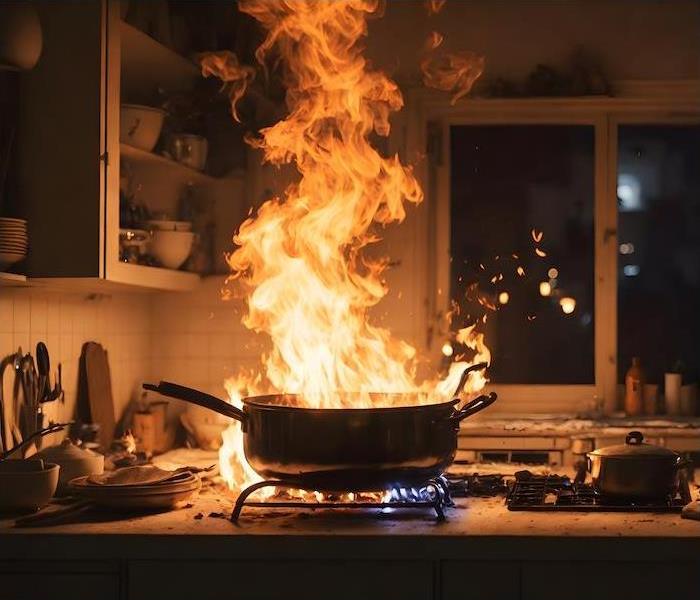 Fire damage in your home? Not for long with SERVPRO of Reno Southwest on the case!
Fire damage in your home? Not for long with SERVPRO of Reno Southwest on the case!
The holidays are here, and what is better at this time of year than donning a holiday shirt or hat, cranking up the tunes and baking or cooking your favorite seasonal food? We would bet you make the best pumpkin pie or cookies in the shape of Santa Claus in the area!
While this time of year is great for many reasons, it is also the time of year when there is a rise in the number of house fires, especially those that start in the kitchen. Understanding your risk and taking the preventive steps below can help you avoid starting a blaze that is sure to put a damper on your holiday season.
Preparing Your KitchenYou should always make sure that your workspace is clean and prepared for the food you are about to make. Clear off the counters and remove any clutter off the floor that could be a tripping hazard. You should also make your kitchen a kid- and pet-free zone while the oven is on or a burner is lit.
Many kitchen fires start because there is an excess of flammable materials nearby a heat source. Put pot holders, oven mitts, wooden utensils and even holiday decorations away while you are cooking. Even just a single spark or a flareup on your gas stove can lead to disaster.
In addition to the flammable materials in your kitchen, you should also be aware of the flammable materials on your body! Cute holiday accessories and aprons may be festive, but they can also catch on fire. Roll up your sleeves and choose your attire wisely.
Stay CloseIt can be easy to not pay super close attention to your food if the recipe you are working on is one you have done hundreds of times. However, that doesn’t mean the risk of starting a house fire isn’t there anymore! That’s why you need to stay close to your kitchen while you have food in the oven or on the stove. Even just walking away for a minute is enough time for a flame to catch and spread.
If you and your family enjoy deep-frying a turkey during the holidays, please use extreme caution and choose a responsible adult to handle the execution. Do not overfill the fryer and choose a flat, nonflammable surface to set it up.
You should also do your research and pull out your turkey to thaw completely in time for your festivities. A partially frozen turkey can lead to oil spattering and popping as it is lowered into the fryer.
Get Your Smoke Alarms in OrderWe know that fire is unpredictable and even if you do everything right, fire can still break out. Having a backup in place to alert you to a developing situation is crucial, so now is the time to check on your smoke alarms and update batteries as needed.
You should also invest in a fire extinguisher that is just for your kitchen. Having quick access to an extinguisher can help you take control of a small situation before it becomes a serious issue.
Have a safe and happy holiday season with your loved ones! Just remember that we are always here if a fire breaks out and you are left with fire damage in your home. We will get your space cleaned, sanitized and restored so you can get back to your festivities ahead.
House fires can happen in the blink of an eye. Contact us for a quick restoration day or night!
Tips and Tricks for Controlling Your Bonfires | SERVPRO of Reno Southwest
9/18/2023 (Permalink)
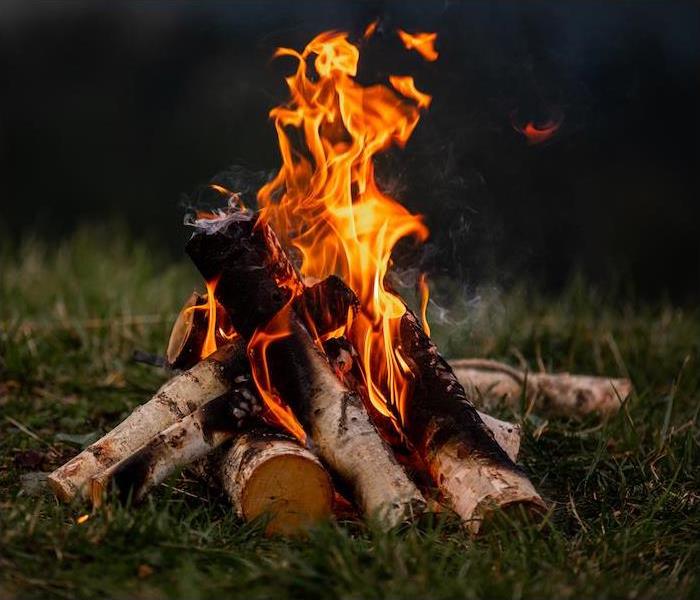 Bonfire season is upon us! SERVPRO of Reno Southwest has your back with these helpful fire safety tips.
Bonfire season is upon us! SERVPRO of Reno Southwest has your back with these helpful fire safety tips.
We may not want to think about it, but the cold weather is coming. The heat and sun of the summer lasted a long and glorious time, but it is time to wind down and start getting ready for the fall and winter months. That means decorations, pumpkin spice and cozier nights hanging out by the bonfire.
This time of year can be a great season to enjoy outdoor fires, but it can also easily lead to serious fire situations if you aren’t careful about controlling your flames.
Our SERVPRO® of Reno Southwest team explains some easy steps to follow below in order to enjoy your smores and campfire stories without the worry of starting an out-of-control blaze.
How to Start the FireDo choose a smart and safe location for your fire. Permanent fire pits can’t be easily moved, but you can ensure the ground is free from debris and your log or brush piles are moved a safe distance away. Portable pits should be set up far away from your house, garage or any outbuilding and should be placed on a level surface.
Do keep water close by for emergencies. A bucket full of water or a hose that is turned on and ready can help you douse your flames quickly if needed. If you are in an area that doesn’t have easy access to water, keep a shovel handy so you can shovel sand or dirt over the flames to extinguish them.
Do watch out for any changing weather conditions and keep an eye out for burn bans. Fire conditions can change daily and strong wind or worsening drought conditions can make even the smallest fires dangerous. Check the local burn ban regulations before even heading outside.
Tips for Controlling the FlamesDon’t use gas, lighter fluid or any sort of accelerant to get your fire going or to revive it. Yes, those substances are really flammable, but they are also really unpredictable in an uncontrolled setting like that. Stick with tinder, matches and lighters.
Don’t let your kids or pets play near the flames, and never leave them unattended near your fire pit. Severe burns can happen in seconds or a curious child can easily spread the fire outside of the fire pit.
Don’t let your fire get too large. Tall flames are harder to control, and a fire can start spreading too fast for you to keep up.
Don’t leave your fire pit for the evening until your flames are completely extinguished. Pour water over the logs until everything is cold to the touch.
Reducing Your Wildfire RiskWildfires are caused by all kinds of things, and unfortunately, humans are responsible for most of the causes. Do your part by being responsible with whatever fires you start and by obeying any burn regulations. A single spark is sometimes all it takes for entire communities to be affected.
If a wildfire or bonfire gone rogue damages your home, our fire damage restoration team is here for you. We will respond quickly and efficiently to help you recover right away.
Fire can cause a lot of damage in a short amount of time. Contact us day or night for immediate assistance.
Our Top Tips For Grill Safety This Summer | SERVPRO of Reno Southwest
8/10/2023 (Permalink)
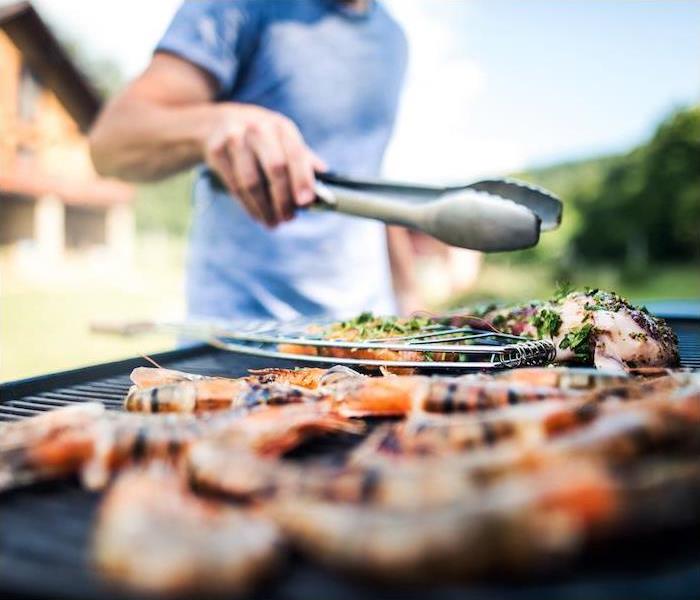 Have you had a barbeque gone wrong? Call SERVPRO of Reno Southwest to get your space back in shape.
Have you had a barbeque gone wrong? Call SERVPRO of Reno Southwest to get your space back in shape.
Many of us take our meal preparations outside when the summer season rolls around. Who doesn’t love hosting family and friend BBQs when the sun is shining, school is out and a warm summer breeze is blowing through the Reno community? We certainly do!
While we love to grill up our favorite brats and burgers, we also know how important it is to take the job of grillmaster seriously. A single mishap or accident can lead to a serious fire situation in seconds. Read on as our SERVPRO® of Reno Southwest team explains more about grill safety and how to reduce your risk of a fire this summer.
Setting Up Your SurroundingsFire safety starts before you even light up your grill. First, you need to be sure the grill is set up completely outside and far away from any overhangs of your roof. You should also steer clear of your garage, even if you have the door open. Ventilation is crucial for your family’s safety, and your grill needs to be away from anything that could start on fire above the heat and smoke.
Additionally, it needs to be on level ground that is at least 10 feet away from your siding or flammable deck railing. A concrete pad or the center of your driveway is often a good place to set up! Try to keep kids and pets out of this barrier as well so no accidents or injuries occur.
Now it is time to inspect your equipment. Charcoal grills produce a lot of ash, so remove any ash buildup before starting a new fire and check the drum for dents or cracks. If you have a propane grill, check the connections and ensure the propane tank isn’t dented or leaking. A leaky gas tank is never a good thing.
Manning the Grill and FlamesOnce your grill is hot and your food is sizzling, your main job is to stay nearby and man the flames. Stepping away for even a minute is all a wandering spark or grease bubble needs to pop and spread into a large fire. Stay close and have your hose ready to use at any point.
When your food is grilled to perfection, remove it from the grill and start shutting everything down. Close the vent covers on your charcoal grill and scatter the coals to help extinguish the fire faster, and remove the ashes and embers once they have cooled. All burners and propane tanks should be turned off and closed. Now go enjoy your meal with your family and friends! Once everyone has left and it is time to go inside for the night, take one more minute to check your grill to ensure everything is off and is cool to the touch.
We hope you have a fabulous rest of your summer in the Reno area, and incorporate some of these tips to help avoid a fire while you are enjoying your BBQs. However, remember that SERVPRO of Reno Southwest is always here to help if a fire gets out of control and you are left with home damage.
Don’t let fire damage linger in your home. Call us at SERVPRO of Reno Southwest for a fast restoration.
Teaching Your Kids About Fire, Safely | SERVPRO of Reno Southwest
6/14/2023 (Permalink)
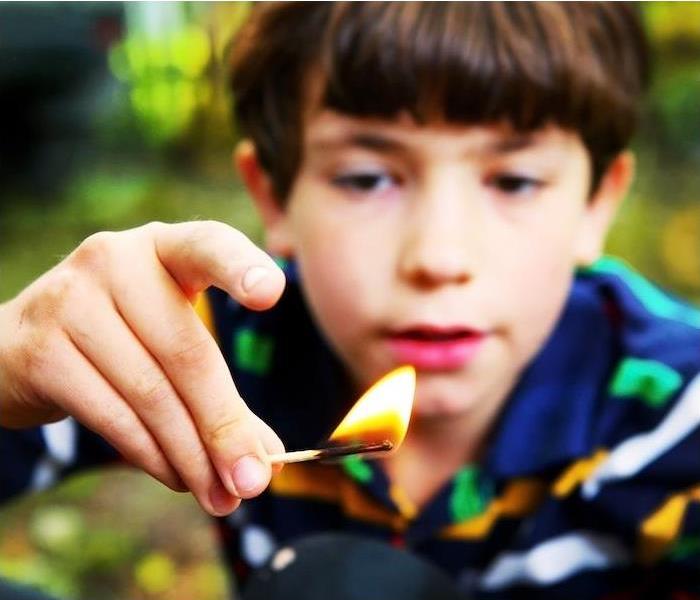 SERVPRO of Reno Southwest is here for you and your family if you experience a fire in your home or business.
SERVPRO of Reno Southwest is here for you and your family if you experience a fire in your home or business.
As a parent or a caregiver, you know how much work it is to raise your children, teach them about the world and keep them safe on a daily basis. You work hard to foster creativity and independence, but you also need to ensure they understand certain concepts and the realities of the world. That can be scary for young kids.
This is especially true when it comes to house fires. In order to help keep your children safe during the possibility of a fire, you need to approach fire safety in a stress-free and encouraging way.
Our team explains some easy ways to incorporate fire safety into your daily lives, so read on to learn some great tips.
Explaining FireIt can be hard for children to understand concepts without seeing the realities in action. However, you don’t want to just be starting fires all over your home!
Start by having your children take you on a tour of your house and have them show you all the areas that fire is used. Be sure to stop at the stove, bonfire pit, grill and even your candles. Talk about how fire is started in each of these places and how it would spread if left alone.
You should also take the time to explain matches and lighters to your children. While you don’t necessarily need to show them how they work, they need to understand that they are adult tools only and should never be played with by children. A single smoldering match could easily be the cause of a devastating house fire.
Meeting FirefightersFirefighters often can look intimidating to young children when they are in full uniform with all of their gear. If your child is scared of the people trying to help him or her, it can create a dangerous situation. Try to show your child pictures or books about firefighters and attend any local community events where our fire department will be present. Meeting these friendly heroes in person can take away some of that intimidation.
In addition to being comfortable around authority, your kids need to have the confidence to be loud in calling for help. You can make a game out of this! Have your children practice yelling their name and certain phrases to you from their bedroom, and then they can army-crawl down the hall and to you as fast as they can.
Finding the Way OutDo you have an emergency exit plan for your home? If not, you should take the time to create one right now. This is also another easy way to involve your children. Let them lead this process and identify all of the ways out of each room in your home and write down their findings together.
Don’t forget to include your windows in this process! Although it might seem scary or irresponsible to teach your children how to open your windows, it is necessary during a true emergency situation. Sit them down and explain how serious it is and that windows are never toys, but show them how they unlatch and how to pop out the screens.
Finally, choose an outdoor meeting place together and then put your entire plan into action. Practice this a few times a year and quiz your children on how to call 911 once you are outside.
Fires can cause widespread damage. Call us for a thorough and efficient restoration.
Every Fire Ever, Explained | SERVPRO® of Reno Southwest
1/20/2022 (Permalink)
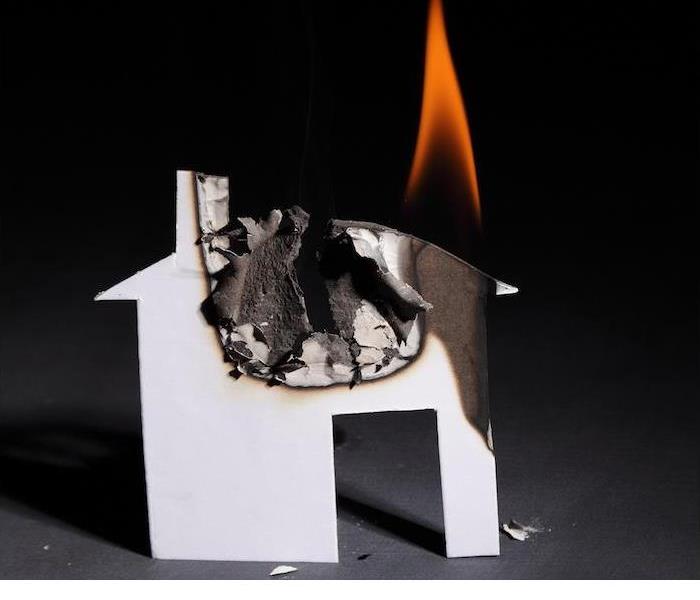 If your home or business has any damage, SERVPRO of Reno Southwest is ready around the clock to help you recover.
If your home or business has any damage, SERVPRO of Reno Southwest is ready around the clock to help you recover.
Fire is one of the most intimidating forces on earth, and we often use angry words to anthropomorphize it—it seems so reckless and full of rage, and it sometimes appears to essentially burn until it decides to stop, despite our best efforts to contain it.
But the truth is that every fire has limitations, and those limitations are ground in four very simple scientific elements.
The fire tetrahedron shows these limitations in a three-dimensional model (think of a three-sided pyramid with a triangular base and you’ve got it).
In doing so, we can pretty simply understand the building blocks and limitations of any fire. See, you will use geometry in real life!
The 4 Things a Fire Needs to LiveFuel. Fires don’t simply happen abstractly—they have to happen to or on some object or material. Whatever you would say a fire “burned,” that would be considered the fuel source.
Heat. Combustion of material can’t happen at low temperatures—that’s why there are no cold fires. An object must reach its combustion threshold before a fire can begin.
Oxygen. Fires literally suck the oxygen right from the air around them and convert it to carbon dioxide—and the air they leave behind is dangerously full of carbon monoxide.
Chemical Chain Reaction. Fuel has to remain available, heat has to stay high, and oxygen has to stay abundant in order for the chain reaction that goes on inside every fire to propagate. The perpetuation of this cycle is crucial, and without it a fire won’t survive.
The 4 Ways to Stop a FireCool it. If heat is vital to a fire, then the inverse must be true of fire management. Using water to chill a fire out and restore thermal balance to the fuel source is a frequent way we stop fires.
Smother it. Cutting off a fire from the oxygen it needs is another effective way to bring a fire to a halt. This is why when you spark a grease fire, you’re instructed to put a cookie sheet or other pan over the pan in which the fire starts.
Starve it. Once a fire runs out of food, it’s done—kind of like a teenager. So removing or separating fuel sources from a fire is an effective method of fire protection and management.
Interrupt the chain reaction. The continuation of a fire depends on the proliferation of its combustion cycle, and if that cycle hiccups, the whole thing is off. A certain set of chemical compounds is able to accomplish this in ways we can’t really get into—but they’re highly effective, and later versions of them are also clean for the environment and leave no moisture or residue behind, which is perfect for putting out electrical fires.
If the fire tetrahedron makes a wreck of your home or business, we’re ready around the clock to help you recover. Contact SERVPRO anytime for fast, thorough cleanup and recovery after a fire.
Top Causes of House Fires | SERVPRO® of Reno Southwest
11/16/2021 (Permalink)
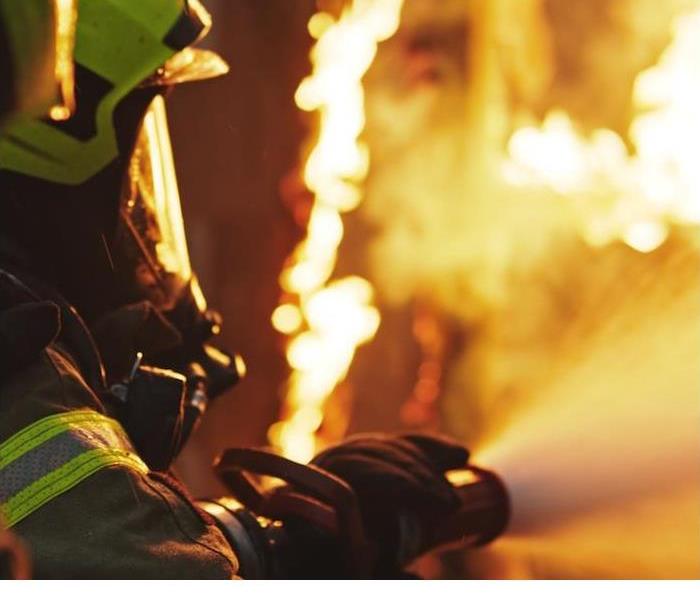 Regardless of the cause, SERVPRO of Reno Southwest is here for you if your home is affected by fire.
Regardless of the cause, SERVPRO of Reno Southwest is here for you if your home is affected by fire.
To see a home go up in flames from a fire can be devastating, especially if it is yours. House fires can spread quickly and cause mass destruction and devastation.
But despite increased awareness campaigns about fire safety over the last few decades, more than a quarter of all reported fires still occur in the home.
Let’s take the time to review the top causes of house fires, along with how you can prevent them:
Cooking. Kitchen fires are the most common source of house fires, contributing to half of all fires. The leading cause is unattended cooking. Reduce the risk of a kitchen fire by staying in the kitchen while cooking when using the stove, oven or a grill.
Heating equipment. The risk of house fire increases during the cooler months, as more people turn on the heat. Heating implements are the second most common source of house fires due to mishaps and malfunctions. Space heaters are a frequent culprit, since they are often placed too close to flammable materials.
Electrical fires. These days, we rely so much on electrical devices. They’re in every room of the house, and when electricity is not used safely, it’s a danger. Ensure you don’t overload electrical outlets or use frayed cords, and if your house is older, have the electrical system checked regularly.
Intentional fires. While it might be hard to imagine, there are more than 28,000 intentional home fires started every year. By intentional, we mean fires that were started purposefully with the intent of destruction.
Smoking materials. Smoking materials are responsible for only 5% of home fires, but they are the leading cause of civilian fire deaths. These deaths often occur when someone falls asleep while smoking.
Regardless of the cause, SERVPRO is here for you if your home is affected by fire. Contact your local team today to see how we can help.
The Fall Safety Tips You Need to Know | SERVPRO® of Reno Southwest
9/17/2021 (Permalink)
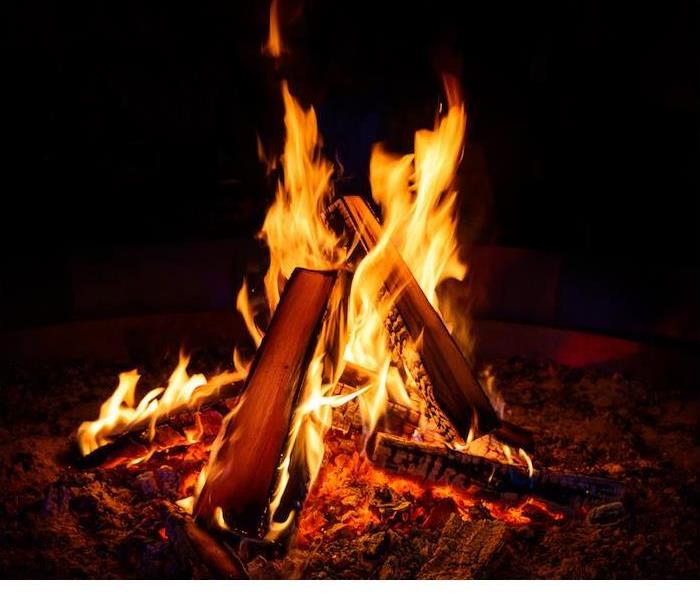 Be mindful about fall fire safety. Always remember that SERVPRO of Reno Southwest is the trusted leader in the restoration in
Be mindful about fall fire safety. Always remember that SERVPRO of Reno Southwest is the trusted leader in the restoration in
As we are seeing, the nighttime is bringing about some crisp weather. That’s right, the fall season is creeping up on us for sure.
This is the perfect weather for having campouts, roasting s’mores or simply enjoying the campfire. Regardless of what your top choice is, settle in and review some of these safety tips.
Campfire Safety
As you camp, hike or roast some warm toasty marshmallows, knowing how or where to build your campfire is probably the best safety tip you can know. As you probably know, you want to keep your fire away from anything flammable.
As you’re prepping items to get ready to burn, it’s best to use dry wood or bigger sticks. When you’re ready to start a campfire, never use an accelerant like kerosene or lighter fluid.
And when you are ready to call it a night, ensure that your fire has been extinguished completely before going in. All it takes is a small breeze to reignite an ember and have your fire started up again.
Space Heaters
Portable space heaters are some people’s best friends during the chillier months. But it’s important to recognize that space heaters are one of the most frequent causes of home fires in the fall and winter. Make sure you keep your space heater away from anything flammable.
Thanks to technology, most space heaters come with an automatic shut-off capability now, but even still, it’s essential you keep these on a level surface. Also keep these mini heaters away from kids or play areas to help ensure they don’t get knocked over.
Halloween
As quickly as the year is going, while Halloween is still a good way off, we just want to touch on a few important issues. Remember that Halloween or fall décor and costumes can all be some serious fire hazards. Be sure to stay attentive when setting up your décor.
If a fire hazard should turn from potential to reality in your home, remember the trusted leader in the recovery industry and contact SERVPRO to get your property fully restored right down to the smell of smoke.
The Warm Months and Fire Safety | SERVPRO® of Reno Southwest
7/2/2021 (Permalink)
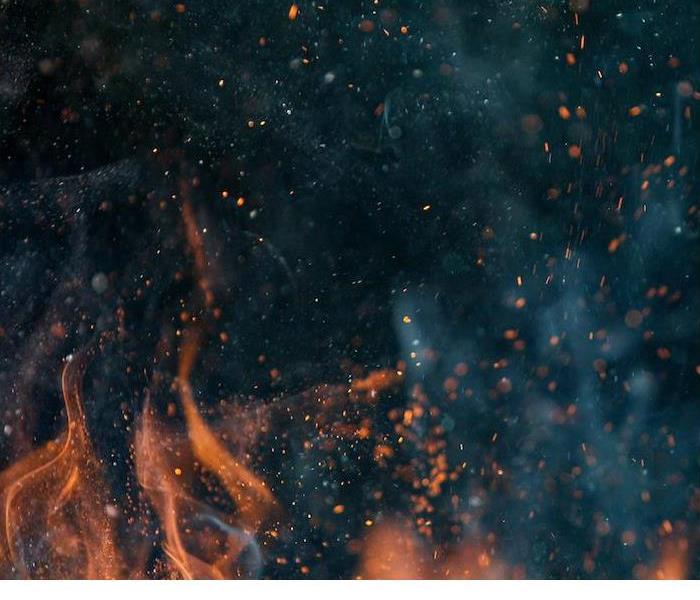 Restoring fire and smoke damage is one of our specialties. Contact SERVPRO of Reno Southwest to learn more.
Restoring fire and smoke damage is one of our specialties. Contact SERVPRO of Reno Southwest to learn more.
Those winter months are gone, and warmer weather is finally here! Thinking about warmer weather can be exciting, planning family vacations or parties, but do your plans include some fire maintenance?
Did you know that spring sees more daily fires on average than any other time of year? It’s true, but there are steps you can take to protect yourself.
Here are some common fire threats and ways to protect yourself:
The grill. There are almost 9,000 fires a year related to grilling accidents. Grills create the perfect combination of flames, heat, grease and gas, which can cause flames to arise quickly. Make sure you are taking care of the essentials to help prevent a fire. Verify that the grill is in good working condition, have it placed at least three feet away from everything and clean it before each use. Cleaning the grill before each use is especially important because almost 20% of grill fires are due to poor cleaning.
Fire pits. Whether you’re gathering around the fire pit in the backyard or a campfire out in the woods, take safety precautions. Even if you think kids are careful, you should never leave them unattended around a fire. It’s also a good idea to keep a bucket of water or drag a water hose close to the pit. You should keep your fire pit three feet away from anything that can catch fire, and finally, put the fire out slowly to avoid scattering embers.
Chimneys and dryer vents. The warmer months are the perfect time to do your annual spring-cleaning around the house. Have your chimney inspected and dryer vents cleaned. If you do it right after the winter months while it’s fresh on your mind, you can save lots of time and money.
At SERVPRO, we have technicians on hand 24⁄7! These technicians are ready and waiting, no matter the cause of fire, to help you have it cleaned up. Contact SERVPRO of Reno Southwest today to talk with a specialist.
What Can You Do to Protect Your Home From Fires This Winter? | SERVPRO® of Reno Southwest
1/26/2021 (Permalink)
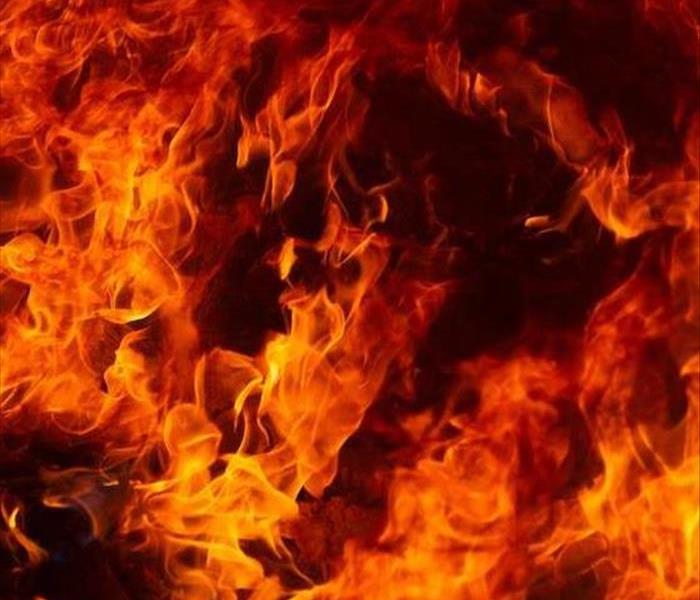 House fires trend to peak during the winter. SERVPRO of Reno Southwest are available 24/7 in the event of an emergency.
House fires trend to peak during the winter. SERVPRO of Reno Southwest are available 24/7 in the event of an emergency.
Experts estimate that about 890 Americans die in winter house fires every year. And that number has been constant for several years now.
It’s not possible to prevent every house fire. Natural disasters like wildfires and lightning storms can’t be predicted. But you can take steps to control the risk factors for fires that are within your control.
Lowering Your Risk for House Fires
Our team is here to help you lower your risk for a house fire and provide you with helpful tips that you can implement into your family’s routine today.
Make sure you have working smoke detectors. Keep your smoke detectors in good, working order by changing your batteries regularly (twice a year), testing them monthly and changing the detectors completely every 10 years. It’s important to note that how often your detector should be replaced is dependent on the brand, so check the packaging for the most accurate information.
Don’t leave your candles where they will fall over. This is easy, and it’s important because many house fires each year are the result of candles. Keep these decorations away from spots in your home where kids or pets can impact them. Also, consider switching to a battery-operated candle for a similar effect.
Make maintaining your home’s natural gas furnace a priority. A yearly checkup is important because sometimes natural gas furnaces may seem like they’re working well but have issues that you can’t see. Clogged vents and rusted blades can result in a fire.
If your home is damaged due to a fire or any other cause, you can always count on us for restoration assistance. We have crews who are available 24⁄7 in the event of an emergency. Contact us at any time to learn more about our restoration services and how we can help your family.
Planning Your Business’ Fire Drills | SERVPRO® of Reno Southwest
6/25/2020 (Permalink)
Being honest with yourself about the places where your business could plan better can make you a more well-rounded business owner overall, and planning for a commercial fire is an area where many leaders find they fall short.
Commercial fires impact many businesses every year, and can derail even the most well-considered business plan if they are not prepared for. While you should plan for all aspects of a fire, from escape to recovery, we always recommend starting with having regular fire drills in your place of business so that you and your staff are as prepared as possible.
Having Regular Fire Drills in Your Place of Business
Consult with your local fire officials. A preliminary search online will reveal many websites you can use to do your research and boost your fire safety plans, but you should also make use of the resources in your community. You can generally have local fire officials come right to your business and evaluate your safety efforts, as well as advise you on the best routes for escape.
Communicate and mark fire evacuation routes. After you have determined the best routes for escape throughout your business, you should mark them clearly and give staff a briefing on the upcoming drill. Having everyone ready in advance will make sure everyone knows it is just a drill and does not panic or cause a dangerous situation due to uncertainty.
Have fire drills frequently. While fire drills can be a dull thing if they happen regularly, they should occur often enough that they are familiar to everyone who works in your building. Typically, scheduling them at the beginning of every quarter will be frequent enough to ensure everyone has the protocols down.
Run different fire scenarios. There are many ways that fires can start and spread through a commercial space, so fire drills that take this into account are more well-rounded. Have the origin of the fire “begin” in different places with each drill so your staff is familiar with how to find the other fire exits in the building and can escape using several different ways.
If your business has experienced fire damage, you can count on us. We specialize in commercial fire restoration and will be here for you at any hour—contact us today.
Navigating the Aftermath of a House Fire | SERVPRO® of Reno Southwest
6/8/2020 (Permalink)
The moment a house fire begins is a frightening thing, and it is important that you work with your household to put an action and evacuation plan in place so everyone can react in a calm, safe manner.
Once you do this, the next step is planning for the aftermath of a house fire—re-entering your home, working with your insurance and having your home restored are all important components that will help you recover as efficiently as possible.
Planning for the Aftermath of a House Fire
Prepare yourself for what to expect. Though you will never be able to be certain of what state your home will be in before you re-enter, preparing yourself for what to expect is important to reduce the overall shock. Fires can cause widespread damage due to the ease with which smoke and soot travel, so there may be unexpected areas that will still be in need of restoration.
Wait to enter your home. While it is a common reaction to want to get started toward recovery as quickly as possible, you should plan to wait and work with emergency officials before re-entering the home. Fires can compromise the structure of a building, making it extremely hazardous to enter if officials have not yet deemed it safe.
Contact your insurance company. Filing a fire damage claim will vary based on your policy provider, so getting in touch with them early on is a great way to make sure you are taking the right steps to get the most out of your claim.
Document the damages. It may feel tedious to document every piece of the home that has been damaged, but it will come in handy for you and for your insurance claims process as well. Keep a detailed list organized by room and take many accompanying photos to be certain nothing slips through the cracks.
Contact your restoration company. Experiencing a house fire is a traumatic life event for your family. Having your home restored by a company you can trust can make the healing process much easier, however. When you can count on the company you are working with, you can worry much less throughout the process and trust that your home is in good hands.
If your home is damaged in a house fire, you can count on us to help you. Get in touch at any hour for a quick response.
For Business Owners, It’s Wise to Lower Your Fire Risk | SERVPRO® of Reno Southwest
2/24/2020 (Permalink)
Business owners are well aware of the importance of understanding the hypothetical risks their business faces, but many do not think about the real risks a fire can present. Fires in the workplace can cause serious damage, and when you own the building, they can also greatly impact your livelihood. The good news is that lowering your fire risk is easier than you might think.
To help business owners understand exactly what their risks are and how they can circumvent them, we have put together this guide of the fire safety tips we think every business owner should know. This way, you can not only reduce the risk that a fire will occur, but you can also be prepared in the event that there is one.
Tips for Business Owners Regarding Fire SafetyFollow code guidelines and inspection schedules. Being aware of fire safety guidelines for businesses is always the first thing to do when assessing your preparedness levels. The National Fire Protection Association puts together information regarding equipment inspection, exit routes and other must-know information for businesses to take note of.
Identify your specific risks. Because of all the factors that go into fire risks, every business faces different hazards that should be guarded against. For example, businesses with many flammable chemicals may face different risks from businesses with a plethora of electronics—making it wise to recognize these specific risks and prepare for them as well as you are able.
Create (and practice) a fire evacuation plan. Keeping your staff safe in the event of a fire is much easier when everyone has been briefed on what to do. Making everyone aware of fire evacuation routes, hosting regular escape drills and debriefing afterward can help you fine-tune your evacuation procedures and make sure everyone can exit the building in a safe and timely manner.
Have regular fire safety seminars with staff. In addition to your evacuation drills, general fire safety tip reviews during your debrief is also wise. This can cover matters such as where to find fire extinguishers, when to manually pull the fire alarm and any other specifics of your building or operations that may help employees practice fire safety every day they come to work.
If your business has experienced a fire, we’re here 24⁄7 to respond and begin restoration. Call us today to learn how we can help you.
Kitchen Hazards...... What to avoid to prevent fire and burns!!!
2/13/2020 (Permalink)
This blog is by no means an exhaustive list of kitchen fire hazards but we will cover the more common hazards that EVERYONE walking into a kitchen should know what to watch out for and how to handle the situations as they arise.
1. Burns
This is one of the most common injuries in a kitchen, burns are painful and sometimes require serious medical attention. One place that most people do not think about in regards to burns is the dishwasher, especially in a commercial kitchen. Dishwashers particularly commercial grade produce an extreme amount of steam which can burn you just as easily as open flame.
2. Slip and Fall
With constant water usage from the sink, cooking liquids including oil, the floor can become incredibly slippery. Regular mopping and slip mats are great ways to prevent falls.
3. Overloaded Circuits
Appliances and kitchen gadgets definitely make life easier for all of us in the kitchen! However you must be diligent in knowing how much power is being used and what appliances are being used at the same time. Having multiple appliances running at the same time can create an electrical fire. Having older outlets in your kitchen is never safe. Replacing them with newer models with built in safety mechanisms is crucial.
4. Loose Clothing and Hair
It takes only seconds for clothing to catch on fire or hair to be wrapped in an appliance. The safest way to work in a kitchen is to have proper attire and hair pulled back and out of the way.
5. Fire
Kitchen fires happen quickly and unexpectedly. It doesn’t matter if the circuits were overloaded or a pan got to hot and the oil ignited… KNOW where the PROPER fire extinguishers are and how to use them! It is important to also know when to NOT use a fire extinguisher.
6. Chemicals
Natural and organic cleaners are best there are some chemicals used when cleaning a kitchen regardless of who creates them. Always make sure to read safety guidelines to clean surfaces correctly. Be aware of all flammable products being used and avoid open flame or heating elements.
We here at SERVPRO of Reno Southwest wish you SAFE and happy cooking! If you have experienced a fire damage and need the knowledge of a professional company to help get you back to “ "Like it never even happened." “ call us today at 775-852-6480 – 24/7 – 365 Days a year!
Our Quality Fire Cleanup Process | SERVPRO® of Reno Southwest
1/30/2020 (Permalink)
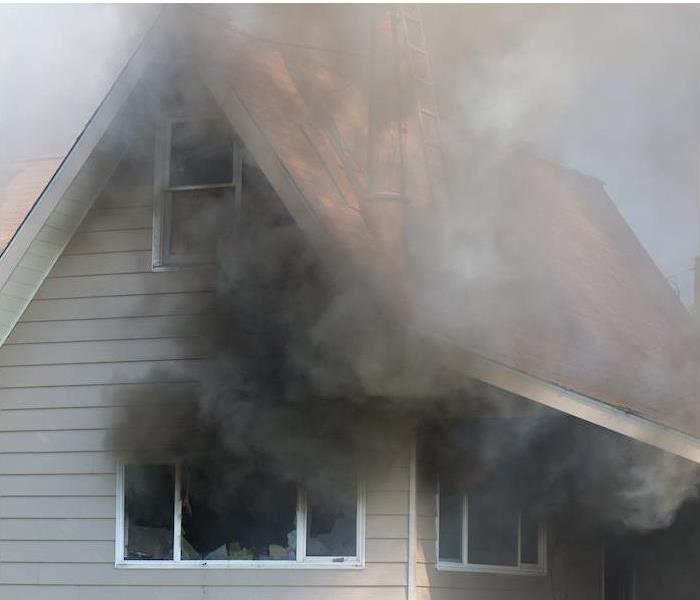 When you home has been affected by a fire its important that a company you trust to restore it as quickly as possible. SERVPRO of Reno Southwest
When you home has been affected by a fire its important that a company you trust to restore it as quickly as possible. SERVPRO of Reno Southwest
With winter approaching, there is no better time to make sure you are fully prepared for a fire. The rate of home fires peaks in the winter months, especially December and January, according to reports from the Red Cross, so checking up on your preparedness in advance is what experts recommend.
Ensuring your household knows the emergency fire escape plan is the first step toward preparedness, but planning for the aftermath is also wise. By picking the restoration company you will work with in advance, you can immediately make the call to begin the restoration process and have your home back to its pre-fire condition as soon as possible.
The Cleanup Process After a FireWhen your home has been affected by a fire, it is normal to want things restored as quickly and efficiently as possible, which is exactly what we are here to do. By having the equipment and expertise to handle every aspect of a fire cleanup, we provide you with peace of mind and quality work to make your recovery process as simple as possible.
Structural Cleaning
A fire can damage many parts of a home’s structure, requiring both cleaning and reconstruction. By testing the area to determine the extent of the damage, we can formulate an action plan to begin this work right away. Our technicians will begin removing soot and damaged materials, then clean and reconstruct areas that have been compromised.
Content Cleaning
Replacing your belongings after a fire is not only a hassle, but it is also often less cost-effective than having them restored. Utilizing both wet and dry cleaning methods, we are able to restore most types of belongings following a fire, including electronics, upholstery and bedding. This advanced cleaning ensures your items will be sanitized, deodorized and fully safe to use.
Deodorization Services
Smoke and soot particles can linger in the air, not only becoming a nuisance but also becoming a health hazard. Proper air purification is essential to your health following a fire, which is why we have air scrubbers and foggers to fully remove these particles instead of simply covering up the odors. This ensures your air is safe to breathe once more.
If you’ve been affected by a fire, reach out to us right away! We are here 24⁄7 to help you recover.
BEFORE A Fire Evacuation - What do I do? How do I prepare?
1/30/2020 (Permalink)
Here’s everything you need to do before, during and after a fire.
Before A Fire Evacuation
Preparation is the most important part of any good evacuation plan.
Disaster Relief Kit
The following is a list of items to have ready and easily available for you and your family.
- Extra Cash
- Clothing Items for each family member: shoes, socks, sweatshirts, sweats.
- Emergency Health Information ( WATER PROOF BAG )
- Medications for each family member
- Extra phone charger(s)
- Vital Statistic Information: Birth Certificates, Social Security Cards, Marriage Certificates ( WATER PROOF BAG )
There are many companies on the internet that sell evacuation kits. This may be a great option for your family’s needs as well.
Family Preparation
The best way to handle any emergency is planning. This is why family preparation is so crucial to survival of a fire!
- Have a meeting spot ( This can be anywhere easily accessible to all members of your family )
- Have ALL family members phone numbers saved in your phone for easy communication.
- Take the time to teach young children the plan!
- Have a clear understanding of fire safety
- Have a clear understanding of HOW to evacuate the home
Transportation
How will you and your family leave the scene of a fire? How will you escape the blaze? This is a crucial element of the planning process that so many forget. If you own a car it is recommended that you never go below a half a tank in case of emergencies. If you do not own a vehicle what are your options for public transport? Do not be one of those of people who thought of everything BUT transportation!
Local fire and what to do if a fire occurs in your home
1/24/2020 (Permalink)
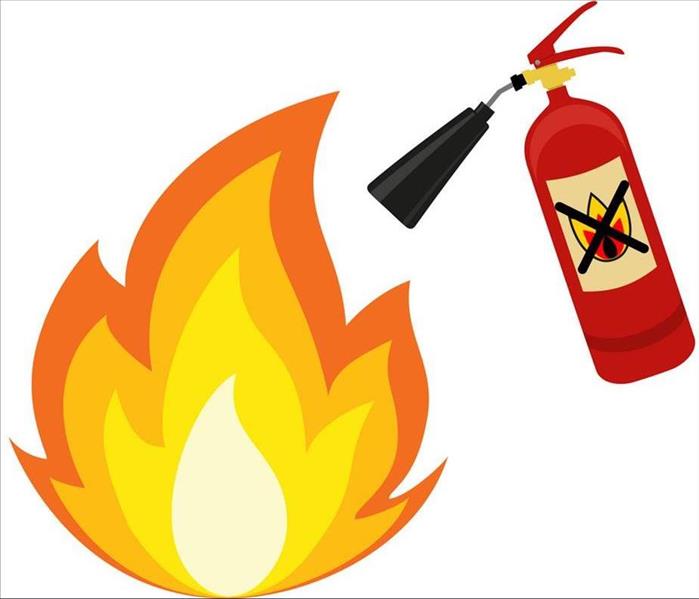 Fire at casino, fire department, news, and officers at the scene.
Fire at casino, fire department, news, and officers at the scene.
Here is a link to a local fire that happened in Reno, Nv at a casino Sands.
https://www.ktvn.com/story/41601065/rfd-investigating-fire-at-the-sands-on-n-arlington-ave
The Reno Fire Department is investigating a fire that broke out early Thursday morning at The Sands on North Arlington Avenue.
RFD got a call just after one a.m. Thursday morning to reports of an activated fire alarm at The Sands in Reno.
When fire crews showed up to the scene, they found smoke in the basement. When crews couldn't locate the initial source, they called for backup trucks.
RFD says they found a chair on fire on the second floor. Officials say the sprinklers were activated in the room. Crews quickly put it out and downgraded their units. Crews on scene say nobody was evacuated or hurt and the only damage to the building is a "V-shape" singe on the wall as a result of the fire.
Fire officials are still investigating what caused the initial spark.
What to do if there is a fire in your homeEveryone in your home needs to know what to do when a fire occurs.
- try not to panic
- tell everyone in the house
- use your pre-planned escape route to get everyone out of the building as quickly as possible
- smoke rises, so stay low or crawl on the floor in the cleaner air where it's easier to breathe
- do not stop to collect any valuables or possessions
- do not stop to look for pets
- if possible, close the door to the room where the fire is located and close all doors behind you as you leave (to delay the spread of fire and smoke)
- before opening a closed door, touch it with the back of your hand; do not open it if it feels warm - the fire will be on the other side
Do Not GO back into the building
- find somewhere safe near the building and wait for the fire service to arrive
- if someone is still inside the building, tell the fire service and give details
- by going back into the building, you'll prevent the fire service from doing what they need to do and put your own life at risk too
Your Guide to Boosting Household Fire Safety
1/21/2020 (Permalink)
While there are many things that can start a fire, one of the smartest things that individuals can do to keep their home and family safe is to focus on preventing what they are able to. No matter how small, a fire can be a devastating occurrence that is better off avoided.
In order to help individuals know exactly how to implement more fire safety measures in their homes, we assembled a list of our top tips for increasing your household fire safety. By implementing these tips, you can have peace of mind and a fire-safe home.
Note These Vital Fire Safety TipsFrequently Check Smoke Detectors. Smoke detectors are one of the best ways to increase your home’s safety from fires. By installing them in bedrooms and on each floor of the home and checking them on schedule (typically every 30 days) you can rest assured that you will know immediately if a fire breaks out.
Have a Fire Escape Plan. Having a plan of action in place in case a fire starts in your home is another must for fire safety. Designate two exits from each room and rehearse the plan with family members regularly to ensure everyone knows what to do.
Know How to Operate a Fire Extinguisher. Being aware of how to operate a fire extinguisher will allow you the opportunity to put out a fire if it is small enough to do so safely. This can make the difference between a disastrous event or a mild one, so it is a good skill to possess.
Never Leave Flames Unattended. Flames from stoves, fireplaces and candles may seem harmless, but they are actually some of the most frequent causes of house fires. An open flame can spread in a moment, so it is best to never leave the room while something is lit to prevent this from happening and turning into a calamity.
Keep a Closed-Door Policy. The most deadly fires often start in the middle of the night, but sleeping with bedroom doors closed is one of the best ways to combat this. A closed door will slow down a fire’s spread, allowing for an extended reaction time that could be crucial in a fire scenario.
If you’d like to learn more about protecting yourself from a house fire and how our restoration services can help you recover, get in touch today to learn more.
Tips for Fire Prevention During Winter Weather
1/18/2020 (Permalink)
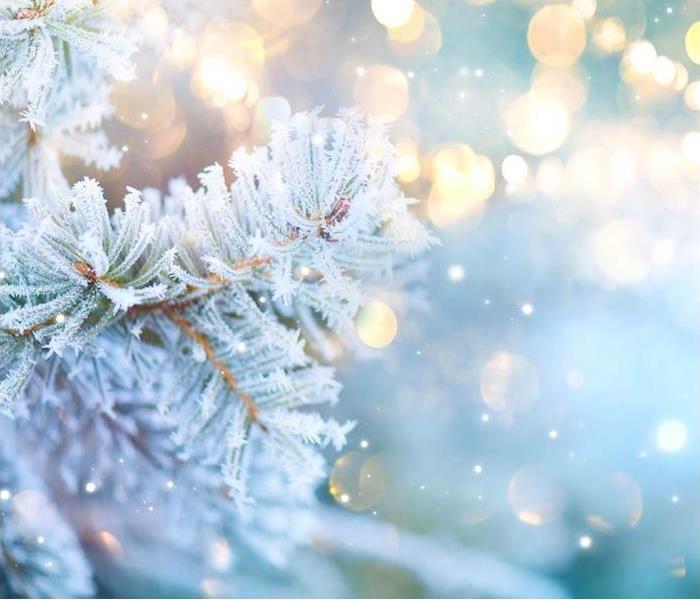 fire damage, smoke, oder, soot
fire damage, smoke, oder, soot
When the temperatures begin to fall in the wintertime, there is a lot to consider in order to prepare around the house. However, one of the most important things individuals can keep in mind is fire safety, as winter is when the rate of home fire peak around the country.
Knowing why this occurs and how to prevent it will be extremely valuable in your winter preparations.
The Reasons Behind Winter Fires
An Increase in Cooking
Cooking is consistently the No. 1 cause of home fires according to the NFPA reporting, and this is true during the winter months especially, with meals and baked goods, leading to more kitchen use and more cooking dangers.
The Risk of Heaters
Using only your home's centural heat can get expensive, causing many to turn to additional methods such as portable heaters and fireplaces to stay warm. Because these are so popular, incidents with them are, too- unsafe heating practices are the second highest cause of fires throughout the winter months.
Candles and decorations
Candles and other winter decor are a fun way to get ready for the holidays as long as they are utilized safely. Unattended candles can put homes at a high risk for a fire at any time of the year, but in the winter they tend to be more readily utilized. For electronics components such as string lights, it is important that they are inspected for tears or frays and are not allowed to get too hot.
Wintertime Fire Prevention Guide
While none of us hope to go through a house fire, accidents happen and flames can quickly spread. However, by practicing both common and season-specific fire safety, individuals can lessen the chances that this will happen to them. Here are some of our favorite fire tips:
- Check smoke alarms once every 30 days and replace every 10 years.
- Always monitor open flames.
- Select space heaters with automatic shutoffs in case they tip over.
- Utilize a screen every time you use a fireplace.
- Draft and practice an emergency escape plan with your household.
If your home has been impacted by a fire, call us right away. We are leaders in restoration and can help you recover quickly after a fire occurs.
Can your bedroom door keep flames and smoke out?
10/17/2018 (Permalink)
Here is a good video on how safe your bedroom could be during a fire. These little tips could definitely help any person during a fire situation. Enjoy the video. These little tips could keep your family safe and alive. Hope this helps any husband, wife or parent. Here is the link for the story.
https://www.today.com/video/fire-safety-can-your-bedroom-door-keep-flames-and-smoke-out-1344392259981?v=raila&cid=public-rss_20181015
Officials are issuing an urgent alert when it comes to home fires – sleep with your bedroom door closed. Turns out, this simple decision dramatically increases your chance of survival if your house were to catch fire. TODAY national investigative correspondent Jeff Rossen reports and has an eye-opening demonstration.
Fire Danger
6/26/2018 (Permalink)
Here is a link to a local wildfire in Dayton.
http://mynews4.com/news/local/crews-respond-to-brush-fire-on-highway-50-near-gold-ranch-in-dayton
Crews are responding to a brush fire in the area of Highway 50 near Gold Ranch in Dayton, according to the Lyon County Sheriff's Office dispatch.
According to Trooper Matt McLaughlin with the Nevada Highway Patrol, both directions of traffic are currently closed at Gold Ranch Casino.
The fire was approximated to be five acres involving heavy brush and cottonwood trees as of 2:20 p.m. on Tuesday.
You are asked to avoid the area until further notice.
News 4 has a crew en route to the scene and will continue to bring you the latest as it becomes available.
Hawaii Lava Flow
5/8/2018 (Permalink)
https://abcnews.go.com/US/lava-flow-intensifies-hawaii-eruptions-spews-200-feet/story?id=54968317
Here is the story about the volcano erupting in Hawaii.
After a day of relative calm, Kilauea roared back in full force on Sunday, spewing lava 300 feet in the air, encroaching on a half mile of new ground and bringing the total number of destroyed structures to 35.
Activity from the volcano, which erupted on Hawaii's Big Island on Thursday, also opened new vents on Sunday, bringing the total to at least 12 by Monday, according to Hawaii's Civil Defense Agency. The agency said Monday many of the vents which had caused so much destruction on Sunday had calmed down.
There have been 1,800 residents evacuated from their homes in the Leilani Estates and Lanipuna Gardens neighborhoods where cracks have been opening and spilling lava into the subdivisions.
"There's no sign of this slowing down," Hawaii's Civil Defense Administrator Talmadge Magno said Sunday. "We had some pauses yesterday, but there seems to be a lot of magma underground."
Good tips for personal rentals
3/29/2018 (Permalink)
Here is a good article if you have any rental properties or are living in a rental property.
https://www.today.com/money/3-tips-make-sure-your-rental-home-safe-carbon-monoxide-t125921?cid=public-rss_20180327
3 tips to make sure your rental home is safe from carbon monoxide and fire
The death of a family of fourfrom Iowa at a property in Mexico has illustrated the potentially lethal hazards when renting a home or condominium for vacation.
Authorities say Kevin and Amy Sharp and their two children were found dead on March 23 after theyinhaled a toxic gas in their vacation rental in Tulum.
Websites like Vacation Rentals By Owner (VRBO), which rented the condo to the Sharp family, indicate that the company is not responsible for the condition of the property.
So how do you know if a vacation rental property is safe for your family?
TODAY national investigative correspondent Jeff Rossen spoke with an expert who provided three things you should do the moment you first arrive at your vacation rental in order to protect your family.
Experts believe the toxic gas that killed the Sharp family was most likely carbon monoxide, which is tasteless, odorless and invisible.
Dave Hamilton with the Morris County Public Safety Training Academy in New Jersey noted to Rossen how it's not possible to tell that a hot water heater is leaking gas even by standing right next to it. So there is a crucial item to bring on vacation - a carbon monoxide detector.
Hamilton suggests mounting a battery-operated or plug-in carbon monoxide detector, which can be purchased for under $30, right outside the room that contains the furnace and water heater. Those are usually the common generation points for carbon monoxide.
In many popular vacation destinations in foreign countries, carbon monoxide detectors are not necessarily required by law.
"One of the best things you can do is take one, and put it in your suitcase,'' Hamilton told Rossen. "Travel with it. They're going to protect you."
Another potential danger in vacation rentals is fire, as you would have no idea if the home you rented is up to code.
Hamilton suggests immediately learning where the fire extinguisher in the rental is located and double-checking so that you know how to get to it quickly in case of an emergency.
Hamilton's third tip is making sure you know where all the exits to the home are located so that you have a fire escape plan.
"Not just the front door, you need to know where the secondary exits are,'' he said. "For example, there's a doorway hidden behind this curtain and there's also another doorway half way down the stairs that you would not be able to find in thick black smoke."
Three simple steps - bringing carbon monoxide detector, locating the fire extinguisher and knowing all the exits - can make sure your family can fully relax on vacation.
Defensible Space
3/7/2018 (Permalink)
Here is a link and the story about defensible spaces:
http://cityofsparks.us/resources/resource/fpb-defensible-space/
DEFENSIBLE SPACE
LIVING IN NEVADA MEANS LEARNING TO LIVE IN AN ENVIRONMENT THAT BURNS
As our community moves closer and closer to the wildland urban interface – the area where the “city” meets open land – there are practical and specific steps you can take to protect your home from wildfires.
Defensible Space is the area around your home where the vegetation has been modified to reduce the fire threat. The size of a home’s defensible space varies, depending upon property size, location, and topography. Sometimes a defensible space is simply a homeowner’s properly maintained backyard. Yet another property owner might need to provide over 200 feet of defensible space around their property. To calculate an effective defensible space for your home, go to http://www.livingwithfire.info. Click on “before the fire” and then go to the “defensible space” section. Please explore this website. It will give you great information on many aspects of how to protect your home from wildland fire.
The purpose of defensible space is two-fold. A properly designed defensible space can provide our firefighters with a safe place from which to defend your home from an approaching wildland fire. At the same time, homes with adequate defensible space are more likely to survive a wildland fire, even without firefighter assistance.
The Sparks Fire Department would like to encourage you to create a defensible space around your home. You can do this by implementing the three “R’s” into your landscaping design: Removal, Reduction, and Replacement. Remove dead or flammable vegetation. Reduce vegetation by pruning or mowing. Providing space between plants and trees removes the continuous fuel bed that might otherwise exist throughout your yard. The more continuous and dense the vegetation in your yard, the greater the wildfire threat to your home. Replace flammable vegetation with less hazardous choices. Shorter plants are better than taller plants, and non-woody plants are better than evergreens or junipers.
It is also important for the safety of our firefighters, should they respond to a wildland fire in your area, that your address is clearly posted and readily visible from the street, and that the street signs are posted and unobstructed. Clear vegetation along both sides of your driveway; and, if your driveway is longer than 150 feet, a turnaround suitable and large enough for fire equipment is required.
As more and more of us move into what was formerly open spaces, it becomes increasingly important that we work together, as neighbors, to keep our homes, our subdivisions, and our communities safe. Ideally, we should all have appropriate defensible space around our homes.
For more information on wildland fire safety visit http://www.firewise.org.
Fire Prevention
3/7/2018 (Permalink)
Here are some good ideas for every family to implement in case of an emergency:
https://www.nfpa.org/public-education/campaigns/fire-prevention-week
Fire Prevention Week Thanks to everyone who participated for a great 2017 Fire Prevention Week campaign. Our 2018 theme will be announced on June 1.
In a fire, seconds count. Seconds can mean the difference between residents of our community escaping safely from a fire or having their lives end in tragedy. That’s why our 2017 Fire Prevention Week theme: “Every Second Counts: Plan 2 Ways Out!” was so important. It reinforces why everyone needs to have an escape plan. Here were some key campaign messages:
- Draw a map of your home by using our grid in English (PDF) or Spanish (PDF) with all members of your household, marking two exits from each room and a path to the outside from each exit.
- Practice your home fire drill twice a year. Conduct one at night and one during the day with everyone in your home, and practice using different ways out.
- Teach children how to escape on their own in case you can’t help them.
- Make sure the number of your home is clearly marked and easy for the fire department to find.
- Close doors behind you as you leave – this may slow the spread of smoke, heat, and fire.
- Once you get outside, stay outside. Never go back inside a burning building.
Causes of Local Fires
3/7/2018 (Permalink)
Here is a link t City of Reno Fire that discusses some of the causes of fire and some ideas of how we can all help our community by preparing and helping prevent fires.
https://www.reno.gov/government/departments/fire-department/fire-prevention/wildfires-and-living-in-the-wildland-urban-interface
Living among the foothills in Reno is known as living in the Wildland Urban Interface or WUI. Reno weather often brings high winds, low humidity, and hot temperatures during summer months however recent years have shown that fire danger can exist all year round.
While lightning strikes account for many wildfires in our region most fires are caused by people. In an effort to reduce the number of wildland fires, below are some common ways fires are started.
Causes of Wildfires
Fireworks
Fireworks are illegal in Reno and Washoe County but still account for many fires every summer. Possession or use of fireworks can result in misdemeanor charges, fines and up to six months in jail. If caught offenders may be held responsible for the cost of fighting the fire as well as any property damage. Anyone wishing to dispose of fireworks can contact the Division of Fire Prevention at 775-334-2300 to have them picked up, or may drop them off at any fire station.
Shooting Safety
Every year fires are started due to illegal target shooting. Target shooting is allowed only in designated shooting ranges and shooting within the City limits of Reno is illegal. Target shooting is prohibited on our region’s federal lands due to the high fire danger. The use of exploding targets or tracer rounds in the city of Reno, Sparks, and federal lands are prohibited.
Equipment Use
Practice vehicle safety. Vehicles and power machinery can cause wildfires from overheated equipment, exhaust particles, fuel leaks and friction from motor parts. Don’t drive over dried brush and grass. Make sure engines are maintained to avoid equipment failure that would produce extensive heat or sparks. Maintain proper tire pressure to avoid blowouts and make sure brake pads are not worn out as friction from metal-to-metal contact may create sparks. Practice safe towing. Use appropriate safety pins and hitch ball to secure chains so they don’t drag.
Smoking
The National Fire Protection Association reports that smoking materials started 47% of the brush or grass fires. Flicking a cigarette butt on the ground, or out of a moving car, can easily catch the dry vegetation on fire.
Grill Safety
An outdoor grill in a bad location can easily cause a fire and damage or destroy your property, or threaten loved ones. It is recommended to have at least 10 feet of space between the grill and the house or trees and vegetation.
Be sure to pour water over coals or ash before disposing of them to make sure the fire is out. Always check your grill before starting it to make sure the connection between the propane tank and fuel line are clear with nothing flammable on the burners. If your grill flares up, close the lid. This will cut oxygen to the fire and help extinguish it.
Campfires
Only build a campfire in designated campgrounds or use authorized fire pits away from any dry vegetation, trees, bushes or ground cover that could catch fire. Never leave a fire unattended or allow it to get out of control and be sure to have water or something near by you can put it out with. Always put the fire out before leaving by pouring water over and throughout the fire area, then spreading dirt on top to ensure that there are no hot embers left behind.
Power lines
Loose tree limbs, Mylar balloons, flying debris, even squirrels can cause a spark if they make contact with a power line. Do not release balloons outside and keep loose items tied down. Our strong winds can cause power lines to come together, creating sparks and a hot metal globule that can fall to the ground sparking a fire. Call NV Energy immediately if you see any potential hazards that may come in contact with the line or damage to the power poles or insulators.
Arson and Children Playing with Fire
Wildland arsons account for 20% of brush fires that have been set intentionally. Most arsons happen during the daytime and are set for many reasons, including vandalism, crime concealment, extremism, profit, excitement or revenge. A wildland arsonist typically looks for opportunity such as areas with dead and dying brush, trash or abandoned furniture. If you see someone leaving the scene of a fire, capture as much information about the subject and immediately pass it on to law enforcement or a fire official.
Children under 12 playing with fire, usually out of curiosity, is the main cause. These cases usually involve more than one child and occur around residences, schools, playgrounds and makeshift campsites. Always supervise your children and keep make sure they do not have access to matches or lighters.
Spontaneous Ignition
Examples of materials that are prone to spontaneous combustion are oily rags, hay and other agricultural products.
To safely dispose of oils and oily rags, preferably use a metal can or container with a tight fitting lid. Place dirty and used rags inside and fill the rest of the container with a mixture of water and soap, seal the top shut and do not open it. This will prevent the oils from oxidizing, and keep the rags from heating up and igniting. Another alternative for oily rags is to spread them out individually on a concrete slab away from any combustibles and let them dry. Once fully dried, the rag will become hard and brittle, about 24 hours in our climate depending on heat and humidity, and will no longer be in danger of spontaneous ignition. It can then be disposed of with regular trash.
For information on how to dispose of hazardous materials, visit the Keep Truckee Meadows Beautiful website.
Helping each other
3/7/2018 (Permalink)
Here are a few things that we can do to help each other prevent fires.
Make it easy for firefighters to get to your home
It is also important for the safety of our firefighters, should they respond to a wildland fire in your area, that your address is clearly posted and readily visible from the street, and that street signs are posted and unobstructed. Clear vegetation along both sides of your driveway and, if your driveway is longer than 150 feet, a turnaround suitable and large enough for fire equipment is required.
Work together with your neighbors
As more and more of us move into what was formerly open space, it becomes increasingly important that we work together, as neighbors, to keep our homes, our subdivisions, and our communities safe. Ideally, we should all have appropriate defensible space around our homes. If you and your neighbors would like help organizing or making a plan, please do not hesitate to contact the Division of Fire Prevention at 775-334-2300.
Careful
3/6/2018 (Permalink)
Here is another local story to show the dangers of fire and how we should not be playing around with it.
http://www.kolotv.com/content/news/Man-recovering-after-being-intentionally-set-on-fire-475812283.html
A man is recovering after being intentionally set on fire in Reno.
It happened around 3:30 a.m. Monday, March 5, 2018, near the Farris apartments on 4th and Sage Street.
The Reno Fire Department got a call of a man that was doused in gasoline and lit on fire near the area. Firefighters and REMSA arrived on scene and transported the victim to Renown Hospital. The fire department says the victim might have to be transported to Davis Medical Center for further treatment.
Shortly after transporting the victim, the Fire Department got a second call of a shipping container on fire behind the Hi-Way Motel near the area where the victim was burned. When firefighters arrived on scene they found a working fire and were able to knock it down.
Since the two incidents were so close in proximity, firefighters are investigating if the incidents are related.
The shipping container had evidence of someone living there and the man who was set on fire was homeless.
The incident is still under investigation.
Thank you to our Fire fighters
1/19/2018 (Permalink)
Yesterday in the area we had windy conditions. Our local fire fighters responded to a small wild fire that could have been disastrous for our community. Thank you Reno Fire for being quick responders. Here is the story from My News 4.
http://mynews4.com/news/local/brush-fire-reported-at-s-virginia-south-meadows-in-reno
Crews are responding to a fire reported in the area of S. Virginia Street and South Meadows Parkway Thursday afternoon.
According to the Reno Fire Department, southbound Virginia is closed for the response. Northbound lanes have reopened.
Reno Fire Chief David Cochran said via Twitter the fire was knocked down after reaching about five acres off Foothill Road. No damage to structures or injuries were reported. Thank you to our local fire fighters. Great job again Reno Fire. we are grateful for the quick response.
Quick Response
1/18/2018 (Permalink)
I want to say thanks to Sparks and Reno Fire for responding so quickly to put out the abandoned gym fire. It could have been worse due to it being so close to cheat grass field and the trees near the river. Here is the story:
Crews with the Reno Fire Department are mopping up an early morning structure fire at a vacant building on E. McCarran Blvd. between Mill and Greg streets. A spokesperson confirms the structure fire partially collapsed the old Bishop Manogue High School gym on Mill Street.
The building was abandoned and no injuries are reported.
Authorities say a fire investigator will remain on scene for several hours to determine the cause of the blaze.
Thanks again to our local fire departments. Keep up the great work and we will do our side of the clean up when we are needed.
Prater Fire
8/9/2017 (Permalink)
I would like to thank all of the emergency personnel who helped in controlling the Prater fire as well as all of the police officers that kept everybody safe and away from the fire. Many of us live in the area and had to evacuate along with our neighbors. If anybody in the area needs any assistance or has any questions as to whether they need our services please feel free to call and we can assess the damages and then make any necessary recommendations. Also contact your insurance agent to ask any questions. They are well equipped to answer your questions. Please continue to be safe out there during the next few days because we are still experiencing thunder storms. As usual we will make it "Like it never even happened"
Wildfire Season
7/5/2017 (Permalink)
As we have been pushed into a hot, hot hot summer season we must remember that there is quite a bit of cheat grass that has grown due to our wet winter. Anything can ignite it and can cause serious damage to our area. We have the Earthstone fire, which is believed to be caused by man, Winnemucca Ranch fire, cause unknown and several others in neighboring areas. Please be careful out there. If you are going caming please make sure you take proper precautions to turn off the camp fire. If you do smoke please make sure you turn off your cigarette butts. Please do not use fire works due to our hot weather and high winds. We all live in the area and we would like to make sure that nobodies home, pets or self is put in any danger. Thanks again and if there is any smoke or fire damage please call the team that can make it "Like it never even happened."
 Ensure a safe Thanksgiving with fire prevention tips! Learn how to cook safely, fry a turkey, and protect your home.
Ensure a safe Thanksgiving with fire prevention tips! Learn how to cook safely, fry a turkey, and protect your home.





 24/7 Emergency Service
24/7 Emergency Service











